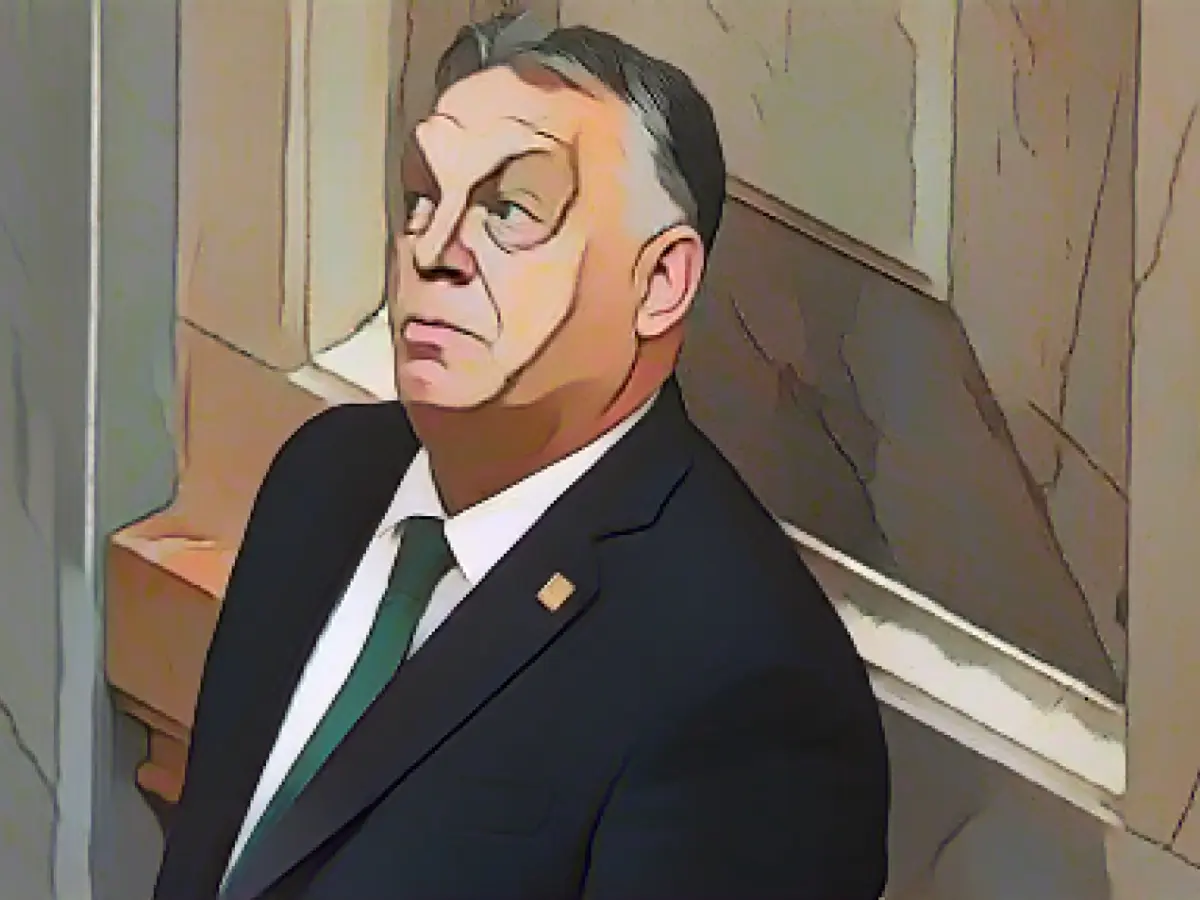EU Unlocks Millions in Frozen Funds for Hungary Amidst Criticism
Despite continuous criticism towards Hungary's rule of law, the European Commission is releasing almost ten billion euros in held EU funds. The commission reasons that Hungary has met the necessary criteria for the release. Remaining budget funds totaling close to twelve billion euros and billions in coronavirus aid still remain blocked.
Justice Commissioner Didier Reynders from the EU stated that Hungary has fulfilled the agreed requirements resulting from recent judicial reforms, and there are now sufficient safeguards to reinforce the independence of the Hungarian judiciary. Reynders clarified that this decision is not the conclusion of the process and will closely monitor future developments.
Will Hungary Revise Its Summit Threat?
The question now stands if the release of funds will influence Hungarian Prime Minister Viktor Orbán’s threat of a summit blockade. At an upcoming EU summit in Brussels, leaders will discuss starting EU accession negotiations with Ukraine and the budget for the EU from 2021 to 2027. However, Hungary has threatened to veto both issues.
Orbán alluded to the fact that the European Commission's recommendation for Ukraine's accession negotiations neglects unfulfilled reform requirements. He argued that the summit decision from June 2022 stipulates that further steps in the accession procedure should only proceed upon seeing these conditions are met fully. Despite the start of negotiations being primarily symbolic and unlikely to occur before the end of the Russian war of aggression, Orbán criticized the Commission's proposal as insufficient, unbalanced, and unrealistic.
Bribe or Standard Practice?
It remains unclear whether Orbán only sought increased pressure to obtain the frozen subsidies for his country or intends on firmly rejecting Ukraine's EU accession negotiations. Some European diplomats consider Hungary's threat of vetoing funds as a potential strategy, while others believe Orbán remains steadfast in his opposition towards Ukraine's EU accession negotiations even after the release of funds.
The European Parliament has severely criticized the European Commission's decision, specifically Green MEP Daniel Freund who expressed his disapproval. Freund accused the EU Commission of paying the “biggest bribe in EU history” - ten billion euros - to autocrat and Putin-ally, Viktor Orbán. Other leaders in the European Parliament also reproached the authorities for unjustly releasing funds.
The EU Commission countered the criticism by stating that withholding the ten billion euros following Hungary's reforms would make them vulnerable. Nonetheless, it complained about the timing of the decision just before the EU summit, thus creating the impression that it could be related to Hungary's summit blockade threat.
Funding Held Due to Concerns Over Corruption and Rule of Law
EU funds totaling around 22 billion euros have been withheld due to worries about insufficient efforts to combat corruption and uphold the rule of law under Prime Minister Orbán. The European Commission has condemned Hungary for undermining EU standards and core values for quite some time. The EU has initiated numerous infringement proceedings and brought Hungary before the European Court of Justice on numerous occasions.
Further Reading:
- Following the release of almost ten billion euros in frozen EU funds for Hungary, the EU Justice Commissioner Didier Reynders anticipates observing whether it will impact Hungarian Prime Minister Viktor Orbán's summit veto threat.
- During the EU summit in Brussels this Thursday and Friday, leaders will decide on the commencement of EU accession negotiations with Ukraine and discuss the long-term EU budget for 2021 to 2027, despite Hungary's threat to veto both issues.
- Hungarian Prime Minister Viktor Orbán argued that the European Commission's recommendation to commence EU accession negotiations with Ukraine is incompatible with a prior summit decision referring to unmet reform requirements.
- At the summit meeting, Orbán also criticized the European Commission's draft budget proposal as "insufficient, unbalanced, and unrealistic."
- Some EU diplomats believe that Hungarian Prime Minister Viktor Orbán may be using the veto threat to secure the release of frozen subsidies for his country, while others claim that he will remain firm in opposing Ukraine's EU accession negotiations, even after the release of funds.
- Green MEP Daniel Freund severe criticized the EU Commission for paying the "biggest bribe in EU's history" - ten billion euros - to Hungarian Prime Minister Viktor Orbán with the released funds, furthering the criticism of the decision by the European Parliament.
- The EU Commission replied to the criticism by stating that withholding the ten billion euros following Hungary's reforms would render them vulnerable. Nonetheless, it disapproved of the timing of the decision just before the EU summit, thus implying a connection with Hungary's summit blockade threat by Prime Minister Viktor Orbán.
References:
*In theory, the EU has not released €10 billion in frozen funds for Hungary. Instead, Hungary has not received approximately €1 billion in EU funding due to allegations of corruption and noncompliance with EU rules on public procurement and transparency.. The larger sum of €19.7 billion was frozen as part of "conditionality" proceedings initiated by the EU in 2022..
The impact of Hungary's blocked funds on its summit threat is considerable. Hungary's noncompliance with EU rules and its continuous obstruction of EU decisions have provoked tension within the EU. The Hungarian government, led by Prime Minister Viktor Orbán, has been accused of undermining democratic standards, and the utilization of its veto power to obstruct several EU decisions, including those linked to sanctions against Russia, has raised concerns about the EU's decision-making stability..
The EU has been cautious in its approach to Hungary, insisting that the country must address its rule-of-law concerns before releasing any further funding. This stance has led to a political standoff, with Hungary's outright refusal to comply with EU demands potentially intensifying the situation and further straining relations between Budapest and Brussels.. The EU's decision to freeze funds represents a significant portion of its efforts to enforce compliance with EU standards, and it is unlikely to release substantial amounts of frozen funds until Hungary fulfills these requirements. *




